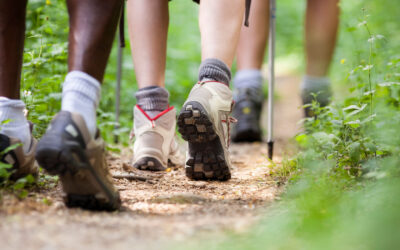If ever proof was needed of how much Rotary packs a punch – here’s Debbie Hodge, Rotary’s President for Great Britain & Ireland, laying into a punch bag at the Stoke Mandeville Stadium in Buckinghamshire.
Debbie, who is also a trustee of the charity WheelPower, was visiting the National Junior Games – a four-day event which gives disabled children from across the country an opportunity to sample sport, possibly for the first time.
Rotary and WheelPower have been closely connected since the 2012 Paralympics when Rotary members got involved with volunteering.
That coincided with a major fundraising initiative to buy sports wheelchairs for those disabled men and women hooked by the legacy of London.
Martin McElhatton is WheelPower’s chief executive who knows all too well the benefits of sports.
He was paralysed from the age of 18 after being hit by a lorry while cycling.
Since then he has gone on to represent Great Britain in wheelchair basketball at the Paralympic Games.
“Sport is incredibly good for people who are newly disabled,” he explained.
“It can help them through their rehabilitation, and it also enables them to continue to be active and lead a healthy life.
“Sport has all the attributes of physical, mental and social benefits which we have been able to see at the National Junior Games.
“For many of the youngsters, this sort of event is inspiring and fun.
“They have that sense of being a child and being normal again, because if they are in a mainstream school, where they are the only disabled child, they can feel excluded or different to their peers.
“But they come to an event like this where they are surrounded by people who are all going through the same challenges and issues. All of them are growing up with a disability.
“Sport can be empowering and confidence-building.
“The power of sport is the catalyst to everything else in your life, whether it is giving people the confidence to go into education or employment.”
Sport is incredibly good for people who are newly disabled. It can help them through their rehabilitation, and it also enables them to continue to be active and lead a healthy life.”
Stoke Mandeville is the home of the Paralympic movement which is this year celebrating its 70th anniversary, with WheelPower at the heart of wheelchair sport.
Sir Ludwig Guttmann, a German-born neurologist who fled the Nazis in the 1930s to work with spinal patients at Stoke Mandeville Hospital, is credited with being the founding father of the Paralympics.
Sir Ludwig’s daughter, Eva Loeffler, is a vice-president of WheelPower, and last week both her son and grandson visited the National Junior Games watching more than 140 youngsters, aged between 12 and 18-years-old from specialist and mainstream schools, take part.
Every April, Stoke Mandeville hosts a similar event especially for those with spinal injuries.
That’s a wrap. The #NationalJuniorGames are done for 2018. And we are exhausted! 22 sports put on and more than 120 smiling faces making it all worthwhile. But we still have 2 children’s camps to come this year. Visit our website and get involved! https://t.co/MYmgiR8X6o #NJG2018 pic.twitter.com/gM64dr1LrE
— WheelPower (@wheelpower) October 4, 2018
“It is a great experience for them to try sports and find something that they enjoy,” reflected Martin.
“There is a little competition, because we believe that is fun and healthy, and they go away with whatever is their personal best.
“That is really important as it is something which they can build on.”
There are plans to open a heritage centre in the grounds of Stoke Mandeville next March which tells the story of the Paralympic movement.
Rotary members across Great Britain & Ireland have regularly supported WheelPower, and in 2012 they raised over £115,000 for the charity to fund specialist sports wheelchairs for athletes, along with training and coaching opportunities for disabled children and recently injured adults at Stoke Mandeville Stadium.
“It was a great project which has led to a national partnership,” added Martin
“We have tried lots of different things to promote each other’s organisations, since we are keen to encourage more disabled people to get involved with Rotary. Rotary is a very positive organisation which helps disabled people.”
Sport can be empowering and confidence-building. The power of sport is the catalyst to everything else in your life, whether it is giving people the confidence to go into education or employment.”
WheelPower has also joined forces with Rotary to organise sports camps – one-day activities for disabled children and adults.
The charity is currently working with Rotary Cambridge South to fund a camp in Cambridge in 2019. It is hoped this might lead to forming a sports club in the area for disabled children.
Martin noted how they have worked with Rotary Bedford Castle on a Wheels Challenge when the club borrowed wheelchairs to host an event on an athletics track allowing able-bodied and disabled people to race.
As a result of this, funds raised helped to form a disabled sports club in the town.
“What we are keen to do with Rotary is to invest any money which is raised by the Rotary club or district back into the areas where they are based,” added Martin.
“Rotary is at the heart of the community and they can help disabled people in their own community to lead more active lives through sports.
“Yes, we would like to raise money to help WheelPower through our national programme, but also we want to do things locally where Rotary clubs are based because we feel this will connect Rotarians to disabled people in their community.
“And, equally, Rotary can help us to find people who want to be more active.
“It might be someone in a wheelchair, a young person with a disability.
“They can signpost them to us and we will help them to find activities near to where they live.”










